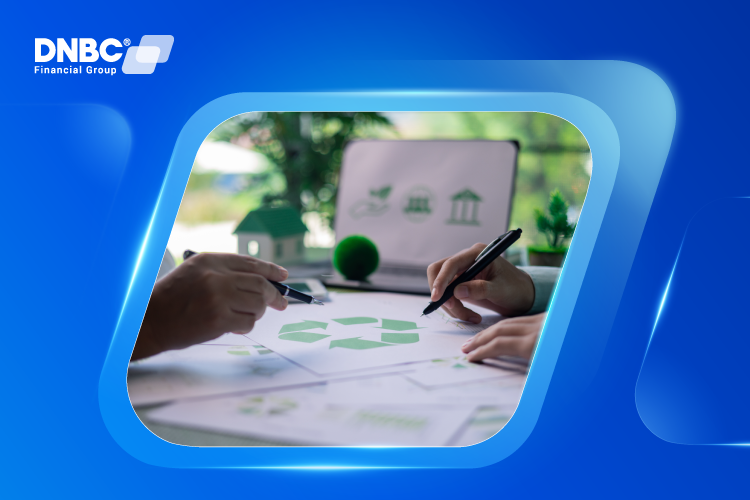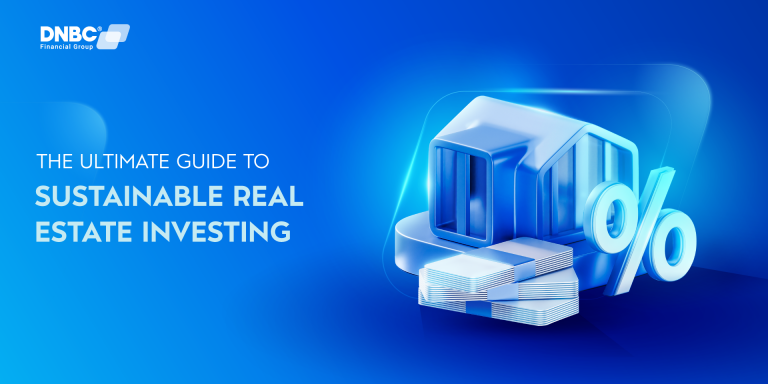In today’s financial landscape, sustainable real estate investing has emerged not only as a responsible choice but also as a smart business decision.
Particularly, investors ranging from individuals and family offices to sovereign wealth funds have recognized the growing demand for sustainable and environmentally conscious projects. They understand these investments meet both their financial objectives and their personal or organizational environmental values.
But how exactly can you succeed in this burgeoning sector?
What Is Sustainable Real Estate Investing?
Sustainable real estate investing focuses on properties designed, built, and managed to minimize environmental harm while maximizing efficiency and resilience.
It goes beyond basic energy savings, incorporating practices like using renewable materials, reducing carbon emissions, and conserving resources. These efforts not only benefit the environment but also deliver solid economic returns, making it a win-win for investors who care about both profit and planet.

The core principles include:
- Eco-Friendly Materials and Tech: Using recycled, renewable, or low-impact materials in construction.
- Energy Efficiency: Integrating smart systems, renewable energy sources, and efficient HVAC to cut energy use.
- Resilience: Building properties that withstand climate risks while optimizing resources like water and energy.
These practices define sustainable real estate, appealing to investors who want to blend financial growth with environmental stewardship.
Why Choose Sustainable Real Estate Investing?
The rise in sustainable real estate investing reflects a shift in priorities. Investors are realizing they can achieve financial goals—like generating income or building wealth—while supporting eco-friendly projects.
For example, you might invest in a LEED-certified rental property to earn steady income or buy a home in a growing, sustainable community to build equity over time.
Furthermore, it’s about personal goals too—reducing your carbon footprint, living in a green home, or leaving a legacy of sustainability.
To get started, define your goals:
- Financial Aims: Are you after rental income, long-term appreciation, or both?
- Risk Tolerance: How much uncertainty can you handle?
- Time Horizon: Will you invest for years or decades?
- Environmental Impact: Do you want to lower emissions or pioneer sustainable living?
- Personal Vision: Does this tie into living greener or supporting your community?
These elements enable you to craft precise and impactful investment strategies that meet both your financial and ethical aspirations.
Active vs. Passive Investing: Finding Your Fit
Sustainable real estate investing offers two main paths: active and passive. Your choice depends on how involved you want to be.
Active Investing
Active investors buy and manage properties themselves. This might mean purchasing a fixer-upper, adding solar panels, and renting it out—or flipping it for profit. It’s hands-on, requiring time and know-how, but the rewards can be significant.
Pros:
- Higher potential returns through direct control.
- Equity growth as property values rise.
- Tax perks like depreciation and green credits.
Cons:
- Time-intensive: managing tenants and repairs.
- Riskier without experience.
- Management stress unless delegated.
For global active investors, funding overseas projects is easier with DNBC’s global money transfers, ensuring quick, secure payments to international sellers or developers.

Passive Investing
Alternatively, passive investors allocate capital through third parties—such as a sustainable real estate fund, Real Estate Investment Trusts (REITs), crowdfunding platforms, or direct partnerships with developers—without direct day-to-day property management.
Pros:
- Lower risk with experienced teams.
- Minimal time commitment—just review reports.
- Diversification across projects.
Cons:
- Lower returns per dollar compared to active investing.
- Less control over decisions.
Passive options include green bonds or impact funds focused on sustainable real estate, ideal for those who prefer a hands-off approach.
Strategies to Launch Your Sustainable Real Estate Investments
Whether active or passive, sustainable real estate investing offers diverse strategies:
- Buy and Hold: Add sustainable upgrades (e.g., permaculture gardens) to a property and rent it long-term for steady income.
- Fix and Flip: Renovate a distressed property with green features and sell at a profit, leveraging tax credits.
- Crowdfunding: Pool funds into sustainable projects via platforms, starting with small amounts.
- Impact Investing: Partner with developers on eco-friendly developments, balancing profit and purpose.
Each strategy aligns with different goals, from wealth-building to environmental impact, letting you tailor your approach.

Practical Steps to Begin Investing
Ready to dive into sustainable real estate investing? Follow these steps:
- Set Clear Goals: Decide if you’re chasing income, equity, or eco-impact.
- Assess Your Style: Choose active (buying and managing) or passive (investing through others).
- Research Markets: Look for areas with demand for green properties.
- Secure Funding: For international deals, use DNBC’s global money transfers for fast, reliable payments.
- Start Small: Begin modestly, perhaps initially investing in one sustainable property or via a sustainable real estate fund to evaluate returns and build confidence.
As you gain experience, scale up—perhaps moving from a single rental to a community-wide project.
Why Network Matters in Sustainable Real Estate Investing
Success in sustainable real estate investing hinges on connections. A strong network keeps you informed, opens doors to exclusive deals, and reduces risk through shared insights.

Here’s how to grow it:
- Attend Events: Meet peers at sustainable real estate conferences.
- Join Online Groups: Engage in forums for green investors.
- Connect Directly: Reach out to seasoned investors for advice.
- Get Local: Volunteer or join sustainability-focused clubs in your area.
A robust network might lead you to a hidden gem—such as a sustainable multifamily property or an impactful sustainable real estate fund—significantly boosting your investment success potential.
Leveraging DNBC for Seamless Global Sustainable Real Estate Transactions
Ultimately, sustainable real estate investing represents more than a passing trend—it is a critical movement reshaping the future of property investment globally. It balances profit with purpose, offering returns while tackling climate challenges.
Whether you’re retrofitting a home with solar power or funding a green development abroad, your investment matters.
With DNBC simplifying global transactions, the barriers to entry are lower than ever, making it an exciting time to join this space.
Why choose DNBC?
- Competitive Fees: Offer transparent, competitively priced rates with no hidden charges, providing reliable and honest service.
- Multi-Currency Support: Seamlessly manage transactions in over 20 currencies.
- Flexible Transfer Options: Facilitate both domestic transfers to over 60 countries and international transfers to 150 countries.
- User-Friendly Interface: Access a user-friendly application DNBCnet for easy management and tracking of transactions.
- 1-on-1 Support: Receive personalized guidance from our expert team to navigate the complexities of international finance.
Embrace the promise of sustainable real estate investing today—and let DNBC empower your financial journey toward responsible, impactful, and profitable global investment success.
DNBC Financial Group is your trusted provider in international money transfer
- Get 100% free 1-on-1 support
- 100% free account opening
- Seamless onboarding process
Or please contact DNBC
![]() Email: [email protected]
Email: [email protected]
![]() Phone Number:
Phone Number:
- +65 6572 8885 (Office)
- +1 604 227 7007 (Hotline Canada)
- +65 8442 3474 (WhatsApp)



 DNBC Team
DNBC Team






